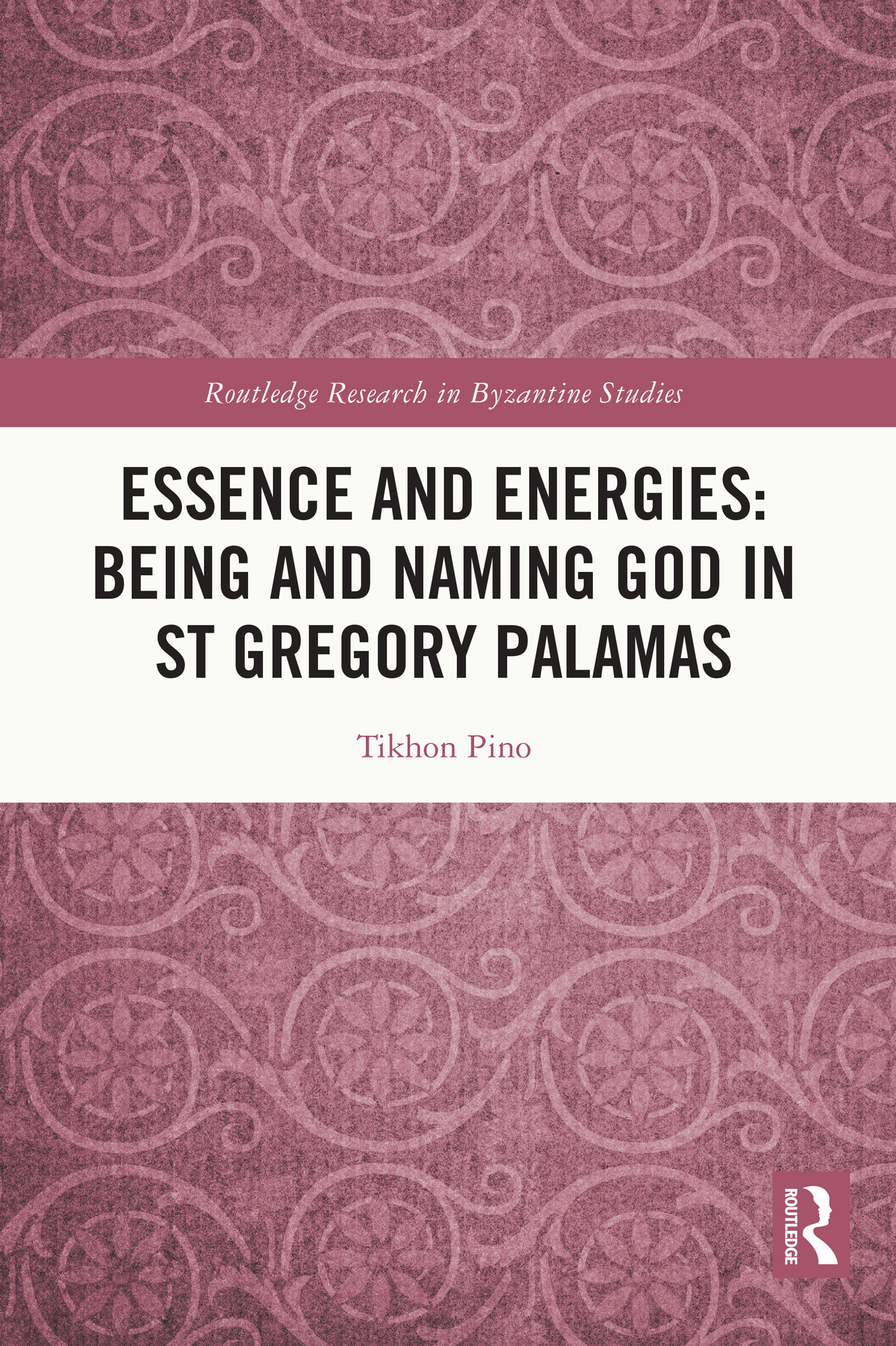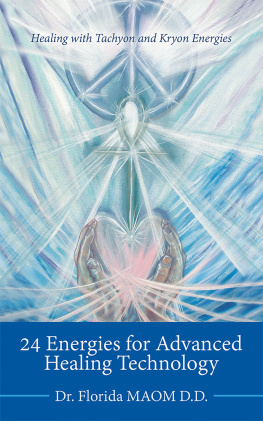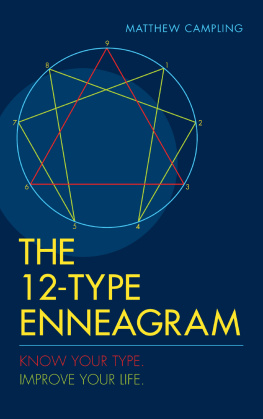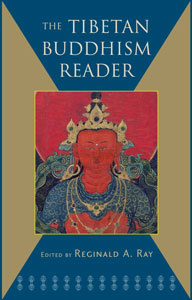
Essence and Energies: Being and Naming God in St Gregory Palamas
St. Gregory Palamas (ca. 12961357) is among the most well-known and celebrated theologians of Late Byzantium. This book provides a comprehensive account of the essenceenergies distinction across his twenty-five treatises and letters written over a twenty-year period.
An Athonite monk, abbot, and later Metropolitan of Thessalonica, Gregory is remembered especially for his distinction between Gods essence and energies, and his celebrated doctrine still generates a great deal of debate. What does Palamas actually mean by the term energies? Are they activities that God performs, and if so, how can they be eternal and uncreated? Indeed, how could God be simple if he possesses energies distinct from his essence? Going beyond the Triads and the One Hundred and Fifty Chapters, this book explores Palamass answers to these long-standing questions by analyzing all the treatises produced by Palamas between 1338 and 1357. It seeks to understand what Palamas means when he speaks of Gods energies, how he seeks to prove that they are distinct from the divine essence, and how he explains that this distinction in no way violates the unity and simplicity of the one God in Trinity.
Essence and Energies is a useful resource for upper-level undergraduates, postgraduates, and scholars interested in Byzantine theology in the fourteenth century.
Tikhon Pino is Assistant Director of the Pappas Patristic Institute at Holy Cross Greek Orthodox School of Theology. He holds a PhD from Marquette University, an MTS from Holy Cross, and a BA in Classics from the Catholic University of America. He has published widely on the Greek theological tradition, specializing in the reception of patristic thought in Late Byzantium.
Essence and Energies: Being and Naming God in St Gregory Palamas
Tikhon Pino

First published 2023
by Routledge
4 Park Square, Milton Park, Abingdon, Oxon OX14 4RN
and by Routledge
605 Third Avenue, New York, NY 10158
Routledge is an imprint of the Taylor & Francis Group, an informa business
2023 Tikhon Pino
The right of Tikhon Pino to be identified as author of this work has been asserted in accordance with sections 77 and 78 of the Copyright, Designs and Patents Act 1988.
All rights reserved. No part of this book may be reprinted or reproduced or utilised in any form or by any electronic, mechanical, or other means, now known or hereafter invented, including photocopying and recording, or in any information storage or retrieval system, without permission in writing from the publishers.
Trademark notice: Product or corporate names may be trademarks or registered trademarks, and are used only for identification and explanation without intent to infringe.
British Library Cataloguing-in-Publication Data
A catalogue record for this book is available from the British Library
Library of Congress Cataloging-in-Publication Data
Names: Pino, Tikhon Alexander, author.
Title: Essence and energies : being and naming God in St. Gregory Palamas / Tikhon Pino.
Description: Abingdon, Oxon ; New York, NY : Routledge, 2023. | Series: Routledge research in Byzantine studies | Includes bibliographical references and index.
Identifiers: LCCN 2022016407 (print) | LCCN 2022016408 (ebook) | ISBN 9781032244792 (hardback) | ISBN 9781032244808 (paperback) | ISBN 9781003278757 (ebook)
Subjects: LCSH: Gregory Palamas, Saint, 1296-1359. | Orthodox Eastern Church--Doctrines--History. | God (Christianity)--Attributes. | God (Christianity)--History of doctrines--Middle Ages, 600-1500.
Classification: LCC BX395.P3 P56 2023 (print) | LCC BX395.P3 (ebook) | DDC 281.9--dc23/eng/20220708
LC record available at https://lccn.loc.gov/2022016407
LC ebook record available at https://lccn.loc.gov/2022016408
ISBN: 978-1-032-24479-2 (hbk)
ISBN: 978-1-032-24480-8 (pbk)
ISBN: 978-1-003-27875-7 (ebk)
DOI: 10.4324/9781003278757
Typeset in Times New Roman
by SPi Technologies India Pvt Ltd (Straive)
For Daria, Markie, and Izzie
Preface
The present work is not devotional reading. Nor is it intended as an apologia for the person and theological positions of St Gregory Palamas. It seeks, rather, to give an objective and well-documented account of Gregorys teaching on essence and energies in order to help scholars and students make sense of a difficult topic and understand what Palamas himself actually taught. Although this study frequently endeavors to make sense of and explicate Gregorys ideas and formulations, it does so through a close exegesis of Gregorys own writings and broader theological context, without attempting to adjudicate the theological debates in which he was involved. It would nevertheless be disingenuous to pretend that I do not consider St Gregory Palamas a great saint and Father of the Church or that I have not enjoyed spending the last several years of my life in the close company of his writings. It is always a privilege to undertake research that one finds meaningful and personally rewarding, and this has certainly been the case with the present study.
This book began as a doctoral dissertation in the Department of Theology at Marquette University, and I am grateful to the teachers, colleagues, and friends at Marquette from whom I learned so much and with whom I spent one of the most enjoyable periods of my life. The research presented here is especially indebted to Michel Barnes, Mark Johnson, Michael Cover, and, above all, my supervisor, Marcus Plested, without whom this project could not have been completed. I am also grateful to Fr Maximos Constas, who first taught me, and showed me, what it means to be a scholar. I have benefited endlessly from his time, guidance, and experience over the last decade, and he was, in many ways, the inspiration for this study. Special thanks go also to John Mark Miravalle, who generously read the manuscript and whose friendship has contributed in a unique way to the sharpening of my mind and ideas over these many years. Further thanks are due also to Norman Russell, Fr Alexis Torrance, and David Bradshaw, who have been exceedingly gracious and generous in their feedback and support.
On a different level entirely, this book would not have been possible without the support of my wife, Daria, who has done more to encourage me, professionally and emotionally, than any person reasonably should. I was able to pursue this work only because she fills every other aspect of my life with meaning and comfort, and I am grateful to her, and to our children, Tamara, Nikolai, Maksim, Ilaria, and Kallistos, for their companionship and unconditional love.
Abbreviations
CAGCommentaria in Aristotelem GraecaCEGregory of Nyssa,
Contra EunomiumCCSGCorpus Christianorum Series GraecaDNDionysios the Areopagite, On the
Divine NamesECQEastern Churches QuarterlyEOchos dOrientGNOWerner Jaeger et al.
Gregorii Nysseni Opera. Leiden: Brill, 1960.JBJahrbuch der sterreichischen ByzantinistikLCLLoeb Classical LibraryOCPOrientalia Christiana PeriodicaPGJ.-P. Migne, ed.
Patrologia Graeca. Paris, 18571866.PSPanagiotes K. Chrestou, ed.
. 5 vols. Thessaloniki: Kyromanos, 1962-1992.REBRevue des tudes byzantinesSCSources ChrtiennesSVTQSt. Vladimirs Theological Quarterly
Abbreviations of the works of St. Gregory Palamas
Next page









